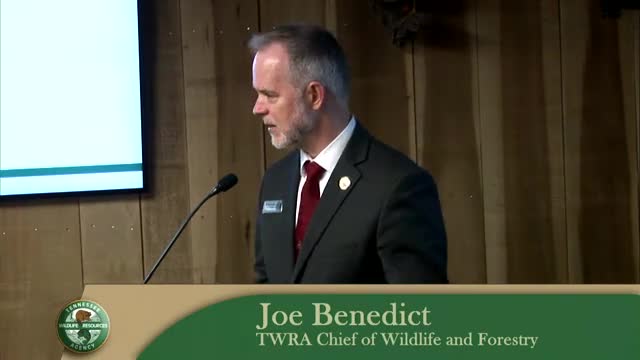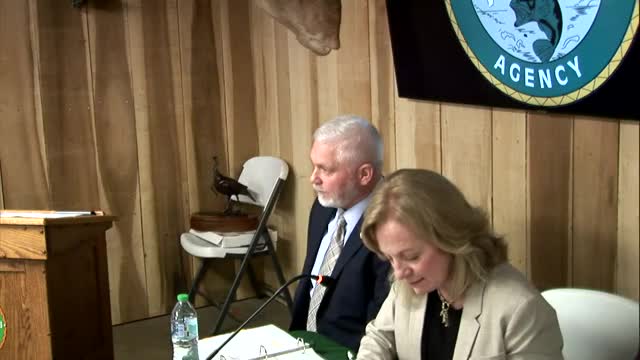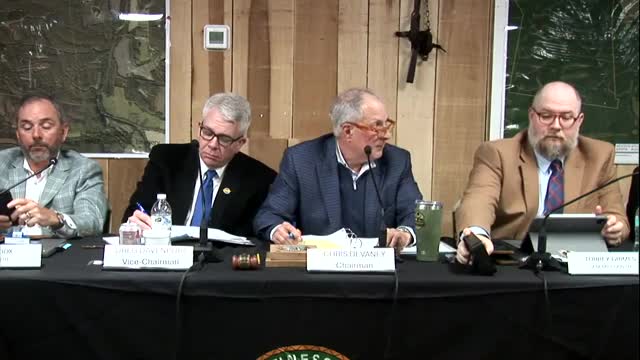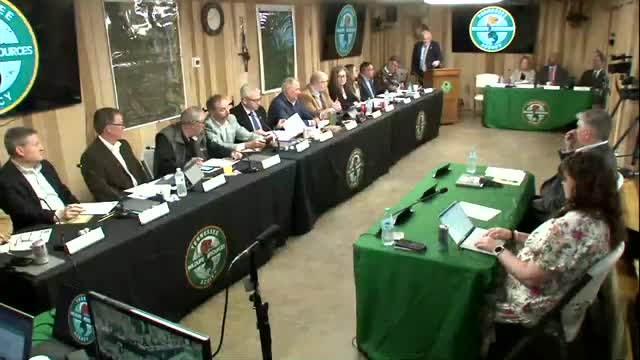Article not found
This article is no longer available. But don't worry—we've gathered other articles that discuss the same topic.

TWRA recognizes staff and wildlife officers for conservation and enforcement work

Commission approves budget expansions; minutes approved — votes at a glance

TWRA proposes Wolf River, Scotts Gulf hunting areas and WMA rule changes; cites safety and consistency goals

